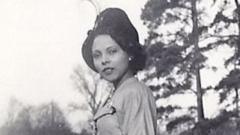Born in 1921 to a French father and a Central African mother, Andrée Blouin’s struggle began in a convent orphanage where she faced adversity. Her political awakening was triggered by a personal tragedy—the death of her son René due to colonial discrimination in healthcare. This ignited her resolve against the colonial systems in place.
Blouin's activism flourished in the late 1950s, particularly in Guinea, where she joined the fight for total independence from France, leveraging her voice at rallies and mobilizing fellow citizens. After Guinea gained independence in 1958, she became a respected figure within pan-Africanist circles, advising various leaders in their quests for freedom.
In 1960, she joined Patrice Lumumba's administration as his chief protocol officer and speechwriter, navigating the political upheavals of the newly independent Congo. Despite the triumphs, her journey was marked by heartbreak and exile following Lumumba's assassination. Blouin’s fight did not cease; she continued to champion pan-Africanism from abroad, even as she mourned the shifting political landscape in her homeland.
Andrée Blouin passed away in 1986, largely unnoticed by the world that benefited from her sacrifices. Yet her legacy lives on, with recent efforts to revive her autobiography, "My Country, Africa: Autobiography of the Black Pasionaria," allowing for a renewed appreciation of her contributions to Africa's independence narrative.




















